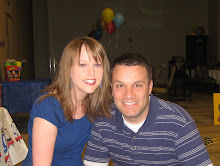From the review of Mark's medical records, the Team believed that the first transplant failed due to necrosis (i.e. death to tissue due to inadequate blood supply). As you will remember, Mark's body seemed to immediately clot off my kidney when it was placed in his body. The lack of blood supply caused my kidney to die which caused it to be removed from Mark's body a few days following the first transplant. The question that needs to be answered before a third transplant will take place is "What caused the clotting?". Over the past two years, Mark has had three major blood clotting issues....his body clotted in response to the first transplant, his body clotted off the fistula the surgeons at UK attempted to create in his forearm for dialysis last January, and his body clotted in response to the dialysis catheter that was tunneled near his heart which resulted in the large "mass" or vegetation that remained in his heart for 6 months last year. A recurrent theme in our discussions at UK has been the presence of a blood clotting issue. Just before the second transplant, Mark saw a Hematologist at UK who checked him for several blood clotting disorders. At that time, he tested negative for one specific blood clotting disorder-antiphospholipid syndrome-a disorder in which he has family history and that has been linked to negative outcomes in transplantation. However, results from the testing at UK have been mixed as analysis of the kidney from the first transplant indicated that a blood clotting disorder may have caused the lack of blood supply to the kidney. In addition, we learned from Hopkins that some of the treatments Mark received around the time of the second transplant could have impacted the results of the blood testing. Because results have been mixed and the significance of a blood clotting disorder is great, the next step at Hopkins will be to see their Hematologist. The Nurse Coordinator is scheduling this appointment for Mark in the near future.
The Team at Hopkins seemed to think that the second transplant was unsuccessful due to humoral rejection or antibody mediated rejection although the testing and analysis completed at UK was inconclusive. As we've mentioned in prior posts, Mark's immune system is very sensitive. He has developed antibodies against most people's tissue. In addition, his immune system has memory to the foreign tissue placed in his body from prior transplants (Justin's kidney and my kidney). This makes him considered "sensitized" and serves as the reason why it may be difficult to find a donor. However, much to our surprise, the Team at Hopkins expressed that they thought Mark would have a "reasonably good chance" of finding a match in a paired donation or "kidney swap". Mark would take part in the sensitized protocol at Hopkins that involves use of plasmapheresis (a procedure much like dialysis in the sense that it pumps out all of the blood in the body, but rather than cleansing it, it removes the plasma or watery part of the blood that carries the antibodies) and IVIG (Intravenous Immunoglobulin-a treatment to replace the protein removed from pheresis) several weeks before and after a third transplant.
After Mark sees the Hematologist at Hopkins and after the the blood that was drawn last Wednesday is analyzed, the Team will determine if we will proceed with a third transplant. If Mark has a blood clotting disorder that they know how to treat, he is likely to be transplanted again. More specifically, if Mark has antiphospholipid syndrome-the disorder in which he has family history, or anti endothelial antibody (something I know very little about), he is likely to receive a third transplant as Hopkins has successfully transplanted sensitized patients with these issues in the past using their experimental protocol. However, if Mark has a different blood clotting disorder, it is unknown whether a third transplant will be attempted. Hopkins transplanted at least two other sensitized patients who exhibited other blood clotting issues unsuccessfully in the past. So, as funny as it sounds, I am hopeful that the testing will show that Mark exhibits another health problem...either antiphospholipid syndrome or anti endothelial antibody!
On a positive note, as you will see below, Mark and I enjoyed our time in DC! We visited the Holocaust museum, the Natural History Museum at the Smithsonian, Arlington, and went on a narrated tour of the monuments! We missed Mark Thomas terribly, but were glad he avoided the bitter cold wind in Washington! In the picture below, Mark is pointing to his name sake...Marcus R. Davis...a Vietnam Vet from Evarts who was good friends with his father.





